Introduction: Understanding the Role of Peer Support
Peer support groups have emerged as a vital part of the recovery landscape, offering people struggling with addiction a sense of community and shared purpose. These groups provide a supportive environment where individuals can connect with others who have faced similar challenges, fostering emotional support and understanding. But what exactly do these groups offer, and why are they so beneficial for addiction recovery? This article delves into the various aspects of peer support groups, exploring their role, benefits, and the evidence supporting their effectiveness.
The Fundamentals of Peer Support in Recovery
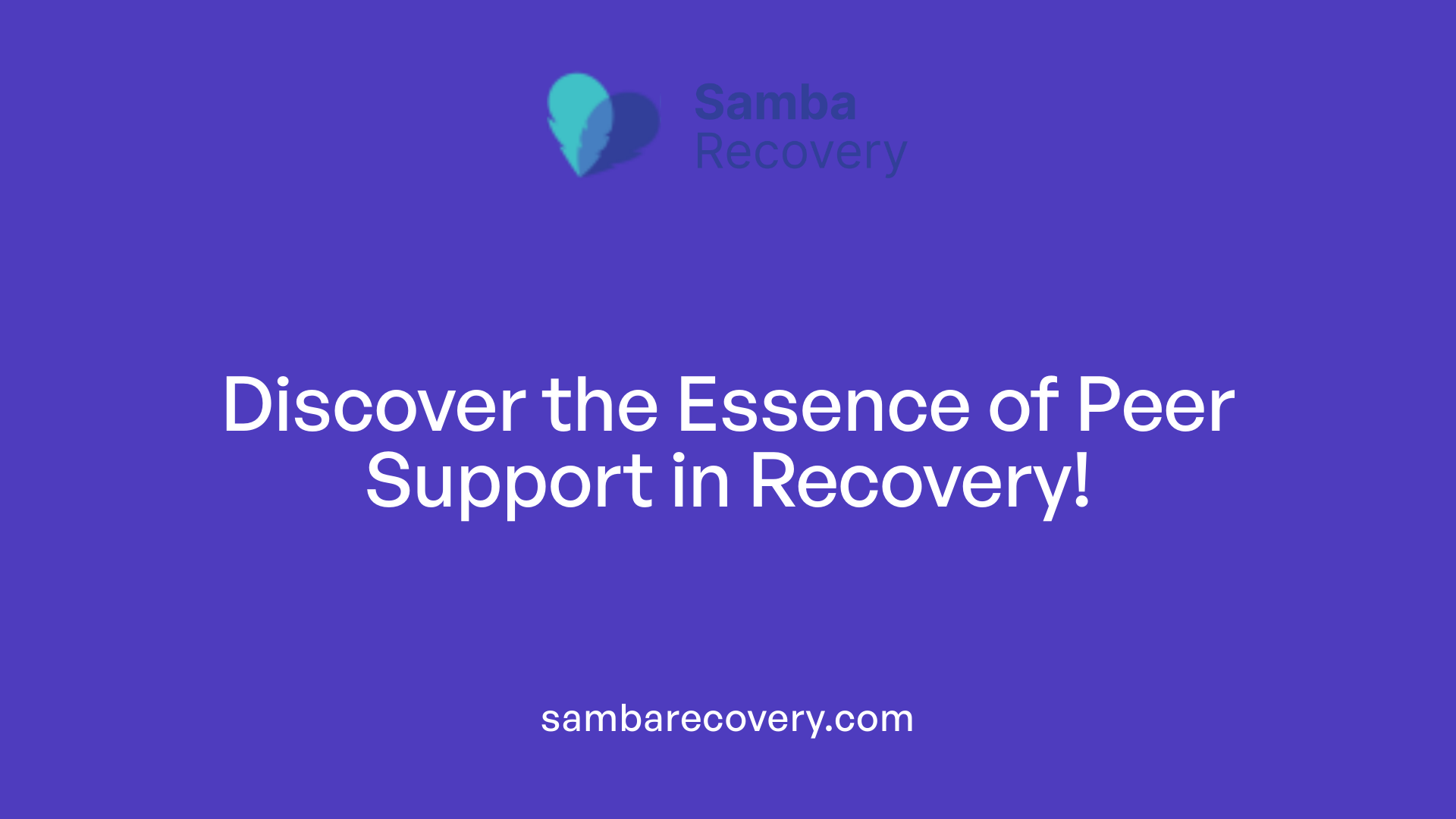
What is peer support in addiction recovery?
Peer support in addiction recovery is defined as the guidance and encouragement provided by individuals who have faced similar challenges, particularly those who have successfully overcome their addiction. This support is typically offered through groups or networks where individuals share experiences, celebrate successes, and address struggles related to recovery. The emotional and social backing that peer support provides enhances feelings of belonging and understanding among participants.
Studies indicate that engagement in peer support groups often leads to better recovery outcomes, such as increased rates of abstinence and higher satisfaction with treatment programs. These groups enable individuals to connect with others who initiate and maintain sobriety, highlighting the importance of community in the recovery journey.
Why are peer connections important in recovery?
Peer connections are pivotal in the recovery process for several reasons:
- Reduced Isolation: Participants often combat feelings of loneliness and despair by associating with others who share similar experiences.
- Accountability: Peer support fosters a sense of mutual responsibility, motivating members to maintain sobriety and adhere to their recovery commitments.
- Skill Building: Engaging in discussions about coping strategies and relapse prevention techniques helps participants develop essential life skills.
Shared experiences foster empathy, allowing members to provide emotional support and reduce feelings of shame associated with addiction.
What are the different types of peer support groups?
Various types of peer support groups cater to diverse needs within recovery, including:
- 12-Step Programs: Such as Alcoholics Anonymous (AA) and Narcotics Anonymous (NA), which focus on spiritual growth and support.
- Non-12-Step Programs: Like SMART Recovery, which emphasizes self-empowerment and evidence-based strategies.
- Gender-Specific and LGBTQ+ Groups: Tailored to address the unique challenges faced by specific populations.
Participation in these groups can significantly enhance the recovery experience, offering individuals a sense of community, ongoing motivation, and practical coping skills to navigate their recovery journey.
Key Benefits of Peer Support Groups for Recovery
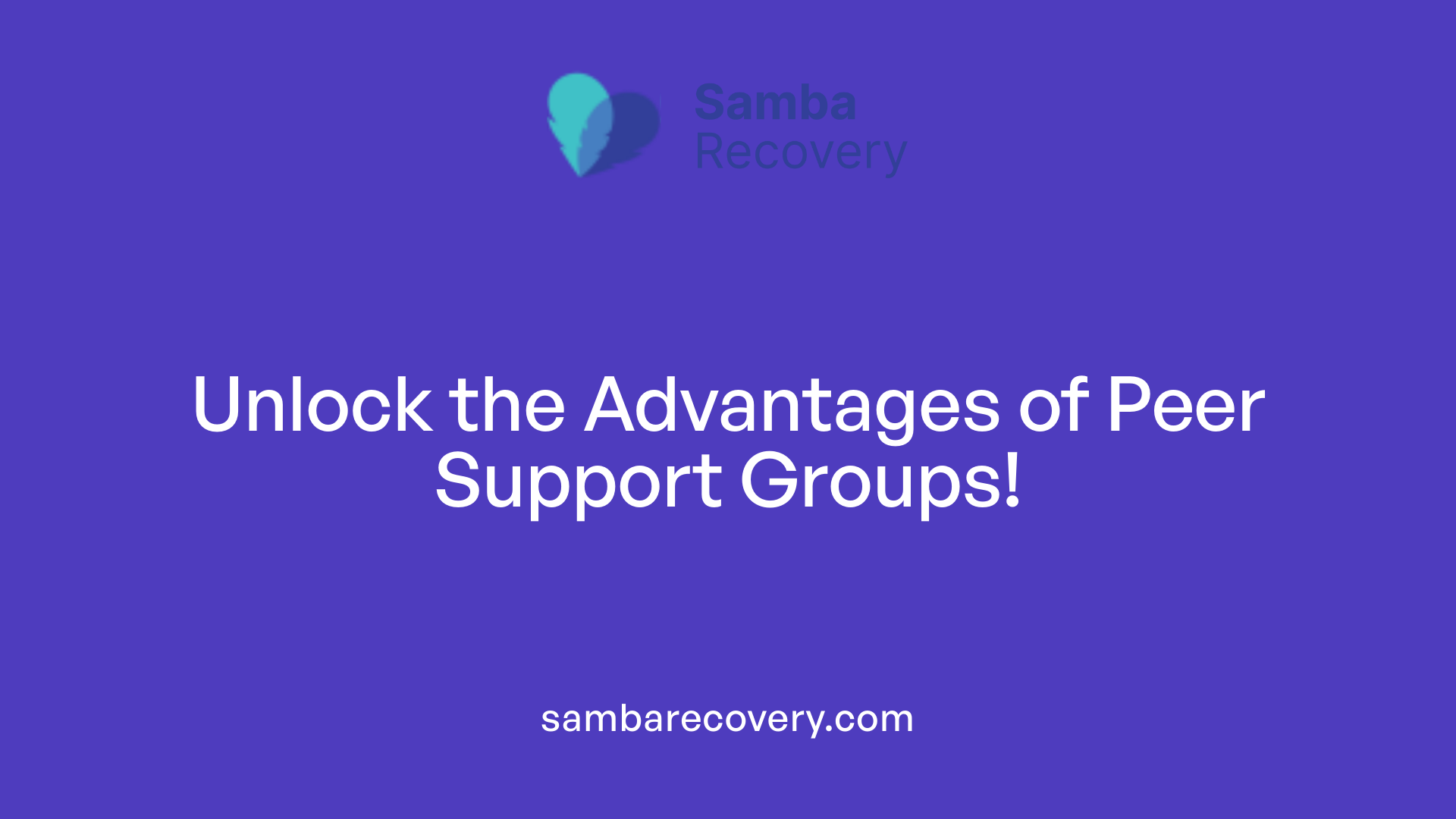
Why are peer support groups beneficial for addiction recovery?
Peer support groups are essential for addiction recovery because they provide a safe environment where individuals can openly share their experiences, feelings, and coping strategies. This supportive backdrop fosters connections among participants, helping to bridge the crucial gap between clinical treatment and emotional support.
-
Emotional support from peers
Sharing struggles with those who have walked similar paths promotes empathy and understanding. Members of these groups often provide compassion and encouragement, which reduces feelings of loneliness and shame that frequently accompany addiction. -
Safe environment for sharing experiences
In peer support settings, individuals can express their challenges in a confidential, non-judgmental atmosphere. This openness facilitates emotional healing as they confront their issues and reinforce their commitment to sobriety without fear of stigma. -
Reduction of social isolation
Combating the isolation that many suffer from during recovery, peer groups allow participants to connect meaningfully with others. These new friendships create a community-based support system that enhances accountability and motivation, crucial in sustaining long-term recovery.
Engaging in these groups enhances coping skills, motivates adherence to treatment plans, and empowers individuals to manage their recovery journeys actively. With a variety of formats—whether in-person, through teleconferences, or via online platforms—peer support groups cater to diverse needs, making recovery resources more accessible to all.
Improving Mental Health through Peer Support
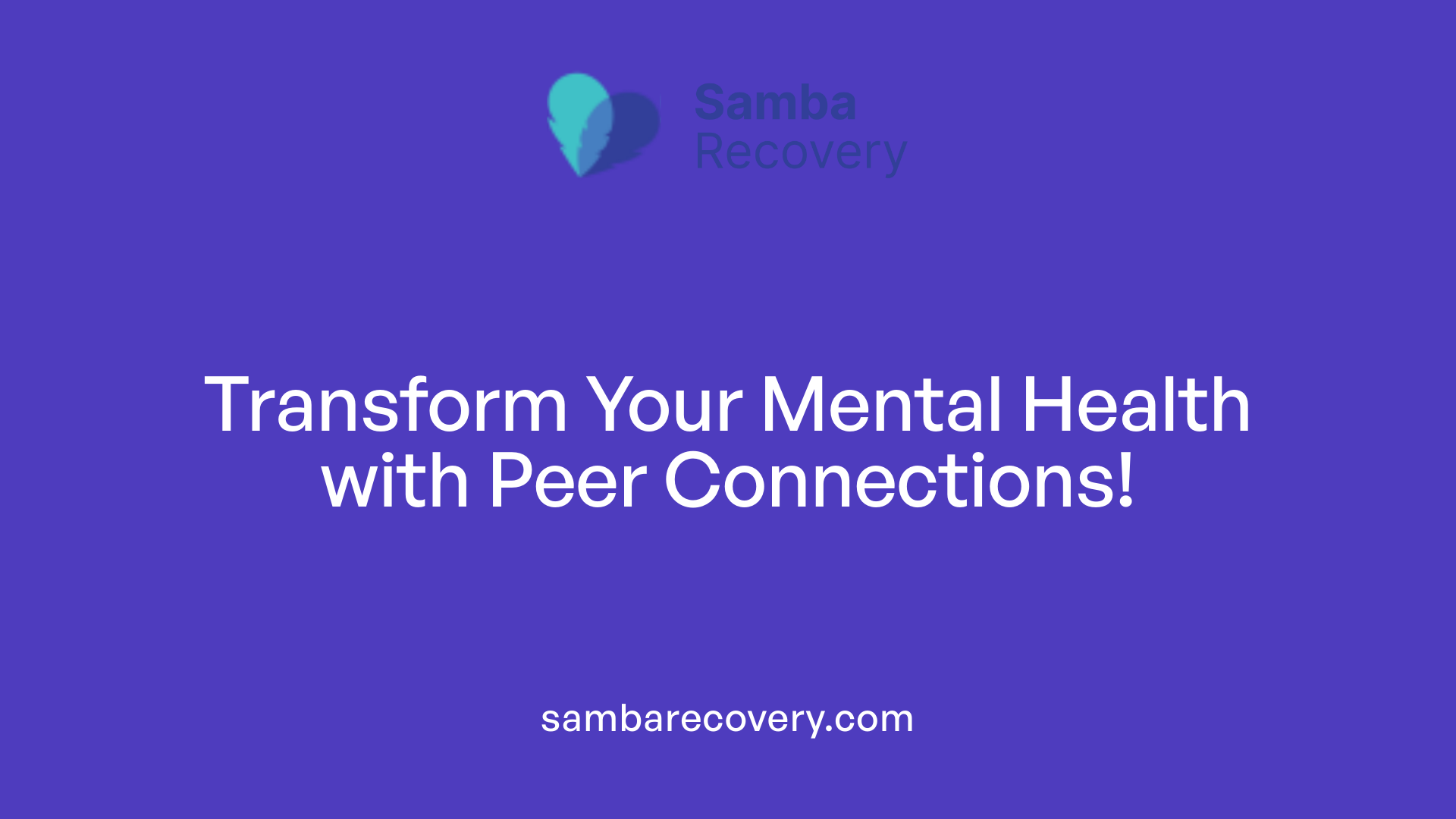
How do peer support groups contribute to improved mental health outcomes?
Peer support groups significantly enhance mental health by providing a safe space for individuals to share their feelings and experiences. This environment fosters open communication, helping members reduce feelings of isolation, distress, anxiety, and depression. By encouraging mutual understanding and empathy, participants can express their fears and struggles without judgment, which is vital for emotional healing.
Measures of Mental Health Improvements
Research indicates that peer support participation leads to tangible improvements in mental health outcomes. Individuals attending support groups often report lower levels of anxiety and depression. Additionally, peer interactions promote the development of coping strategies and emotional regulation skills, further enhancing overall well-being. The comforting aspect of having peers who understand similar challenges contributes to a stronger sense of belonging, which is crucial in recovery.
Mechanisms for Self-Empowerment
Several psychological mechanisms contribute to self-empowerment within peer support contexts including:
- Social Learning Theory: Individuals learn from observing their peers’ recovery journeys, gaining insights and coping strategies.
- Cognitive Behavioral Theory: Sharing experiences helps members challenge negative thought patterns and reinforce positive behaviors.
- Helper Therapy Principle: As individuals in recovery help others, they reinforce their own learning and confidence.
Overall, these interactions promote empowerment, encouraging individuals to take active roles in their health and recovery journeys.
Variety and Scope of Peer Support Programs
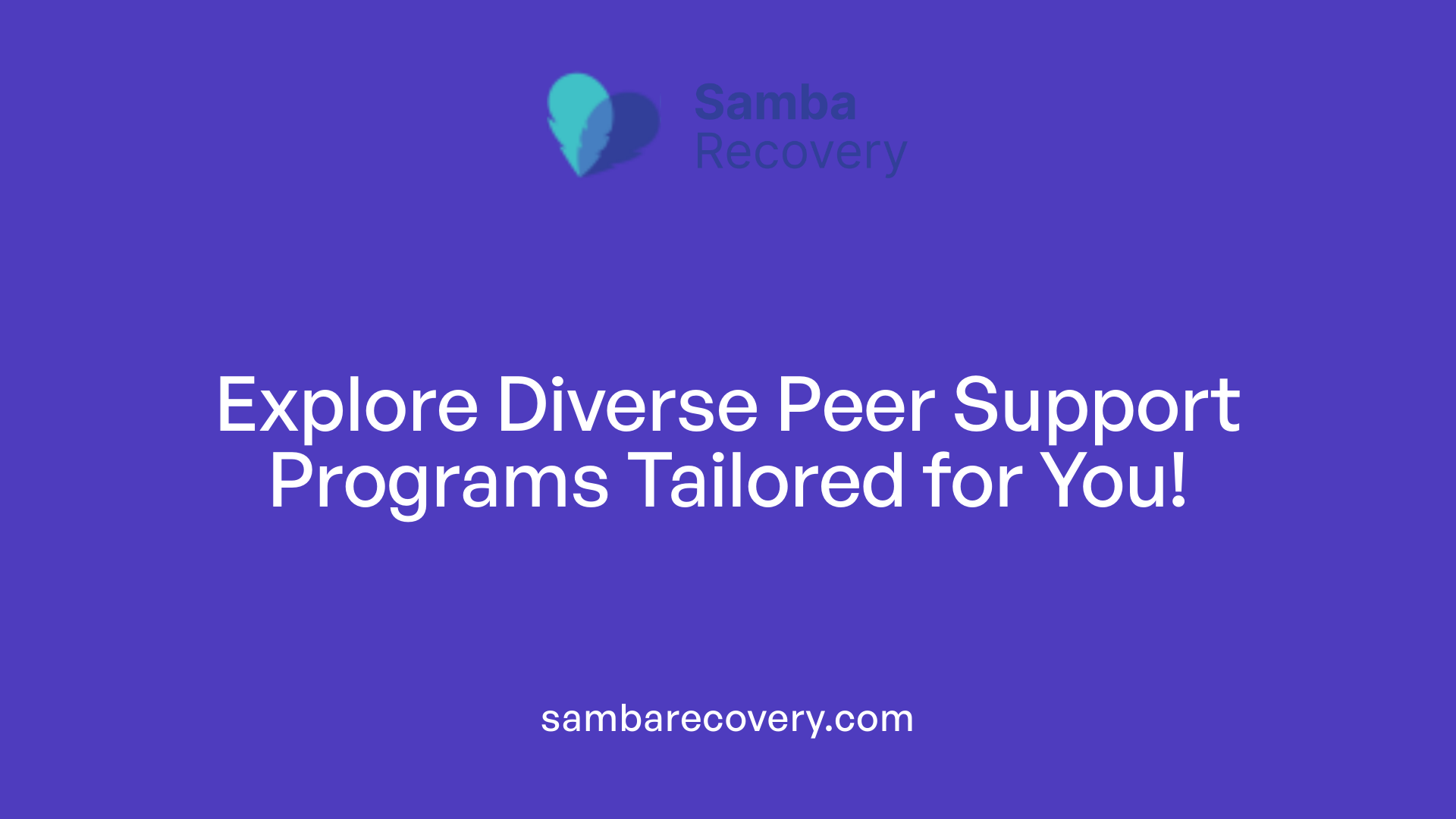
What types of peer support programs are available for addiction recovery?
There are various types of peer support programs available for addiction recovery, catering to diverse needs. Notable examples include:
- 12-step programs: Such as Alcoholics Anonymous (AA) and Narcotics Anonymous (NA), these programs emphasize spiritual growth and personal accountability.
- SMART Recovery: Focused on self-management, SMART Recovery offers evidence-based techniques for coping and motivation.
- Non-12-step groups: These often provide a more secular approach, focusing on empowerment and practical strategies.
- Gender-specific and LGBTQ+ groups: These tailored support structures help address unique challenges faced by these communities.
What specific benefits do different programs offer?
Each program provides unique advantages. In 12-step groups, participants often find community through shared spiritual goals. SMART Recovery focuses on self-efficacy, helping individuals regain control over their lives while learning effective coping strategies. Gender-specific and LGBTQ+ programs enhance comfort, helping members address specific societal pressures or stigma.
How is support tailored for different groups?
Tailored support plays a crucial role in effectiveness. Programs are designed to meet individuals at their unique starting points in recovery, guiding them through shared experiences. This customization encourages engagement by making the recovery journey more relatable. Participation often leads to reduced feelings of isolation and enhanced emotional well-being, crucial for sustainable long-term recovery.
Roles and Responsibilities of Peer Supporters
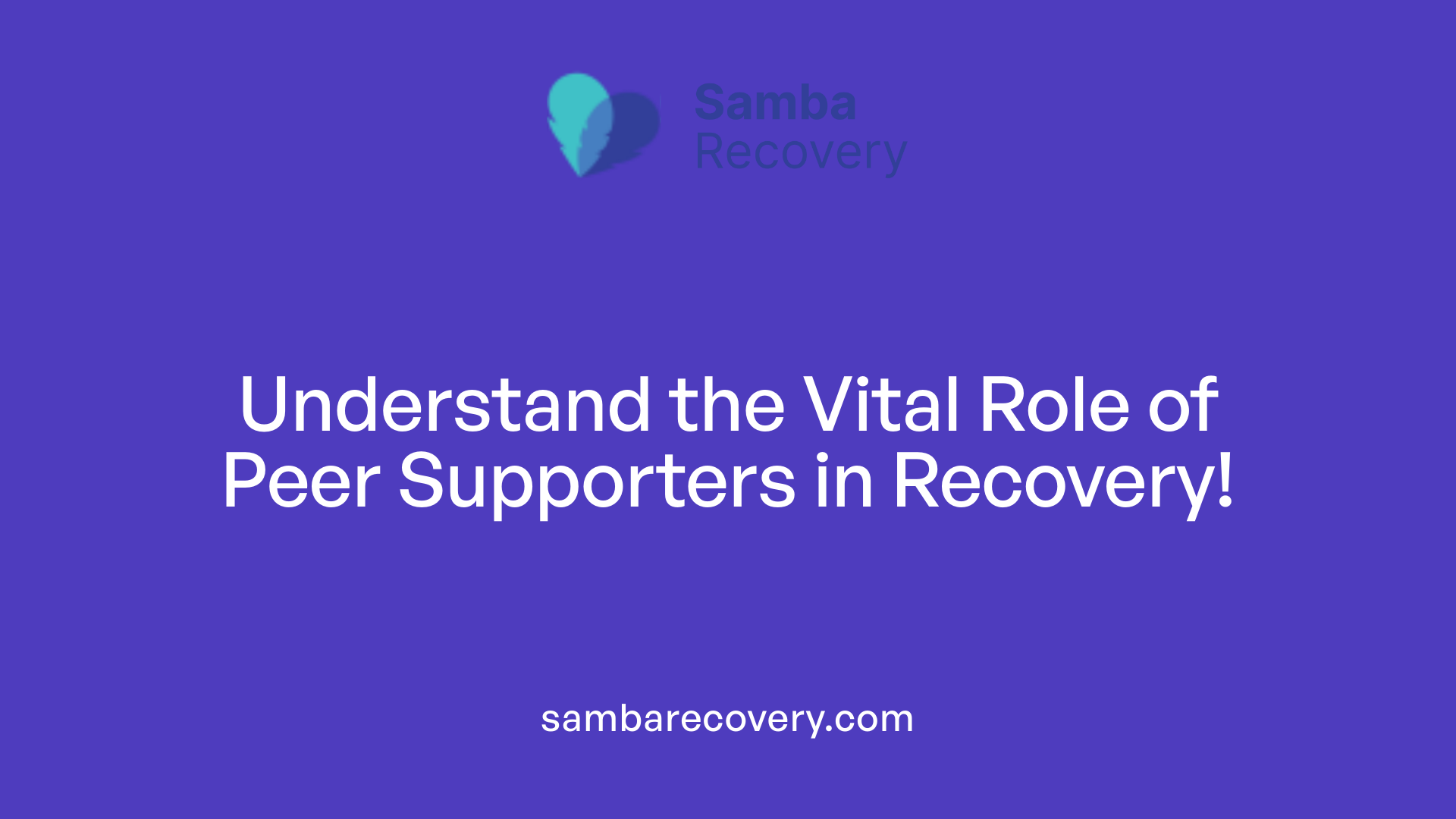
What roles do peer supporters play in the recovery process?
Peer supporters are essential in guiding individuals through the recovery journey, drawing on their personal experiences with addiction. They serve as mentors, offering emotional support, practical advice, and a listening ear. In group settings, peer supporters facilitate discussions, encouraging members to share their challenges and successes, which fosters a sense of community.
These individuals play various roles, including:
- Mentoring: Sharing their own recovery stories to inspire hope and provide real-world examples of overcoming addiction.
- Navigating Recovery: Assisting newcomers in setting personal recovery goals and strategies to achieve them.
- Accountability Partners: Helping members to stay focused and committed to their recovery plans through regular check-ins and support.
- Resource Connectors: Providing information about available treatment options, community programs, and support services that can aid in recovery.
By helping to build a supportive network, peer supporters enhance engagement and adherence to treatment programs, ultimately leading to better recovery outcomes and lower relapse rates. Their lived experiences create a unique bond, allowing them to empathize with others while instilling a sense of hope that sustainable recovery is achievable.
Evidence and Challenges in Peer Support Groups
What is the evidence supporting the effectiveness of peer support in addiction recovery?
Research supports the effectiveness of peer support in addiction recovery by highlighting its role in fostering a sense of community, which is crucial for sustained recovery. Peer support services have been associated with improved relationships with treatment providers, reduced relapse rates, and increased retention in treatment programs.
A systematic review of 49 randomized controlled trials revealed a small but significant positive effect on personal recovery and a decrease in anxiety symptoms. Furthermore, participants in peer-supported programs reported enhanced social support and a stronger sense of belonging, vital for successful recovery outcomes.
Overall, while more rigorous studies are needed, existing evidence suggests that peer support significantly contributes to improving recovery outcomes for individuals with substance use disorders.
What challenges and considerations are involved in peer support groups for recovery?
Peer support groups for recovery face several challenges, including:
- Maintaining confidentiality: Ensuring that personal stories shared within the group are kept private.
- Managing relationship boundaries: Balancing the supportive role without becoming overly involved personally.
- Ensuring a non-judgmental environment: It’s essential for members to feel safe in expressing themselves.
- Pairing peer supporters effectively: Matching individuals based on experiences and needs can impact the support’s effectiveness.
- Addressing skepticism: Healthcare professionals may question the utility of peer support, necessitating clear communication about its benefits.
- Ethical considerations: Issues such as informed consent and competence of peer support specialists must be navigated carefully.
Despite these challenges, peer support programs can reduce social isolation and enhance participants’ quality of life through emotional and informational assistance.
Conclusion: Empowering Each Other Through Shared Journeys
Peer support groups have proven to be a cornerstone in the recovery process for individuals facing addiction, providing unmatched emotional support and practical guidance. They facilitate a sense of belonging and empower participants by reinforcing the shared journey of recovery. Peer supporters, drawing from personal success in recovery, play a pivotal role in guiding others and fostering environments where participants can thrive. Despite challenges, the positive impact of peer support on recovery and mental health outcomes is backed by growing evidence. As these groups continue to evolve, they stand as a testament to the power of community and shared human experience in overcoming addiction.
References
- 6 Concrete Benefits of Peer Support for Addiction
- The Power of Connection: Peer Support and Mutual Support Groups …
- The Role of Peer Support Groups in Substance Abuse Recovery
- The benefits and challenges of established peer support …
- 10 Benefits of Peer Support in Addiction Recovery | All Points North
- 14 Benefits of Addiction Support Groups | Addictions.com
- Peer Support Workers for those in Recovery – SAMHSA
- The Benefits of Peer Support in Recovery – Free by the Sea – WA






